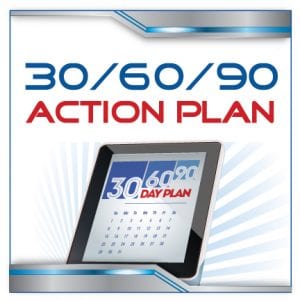Thinking of changing careers? You’re not alone. According to a 2017 Gallup study, more than 2/3 of all workers are dissatisfied with their jobs. And many of them change jobs or switch careers entirely.
But changing careers is not necessarily so easy. First you have to get the interview, and then you have to get the job.
(Here’s a great article on how to get interviews during a career change.)
Why Are You Changing Careers?
Several questions will come up during your interview that directly address why you’re changing careers. Here are a few questions from my How to Answer Interview Questions series and some hints on how to answer them.
Why did you take a job that seems outside your career path?
If you’re changing careers, they’ll want to know why. You may have a job or two in your past that doesn’t quite fit, if you were trying to find your way. To answer questions like this, put yourself in the hiring manager’s shoes and explain your thought process. How did it lead you to this moment (and why is this job perfect for you)?
Why are you the best fit for this position?
When you’re changing careers, your fit for the job might not be obvious. Spell it out, but always keep the focus on them: What problems can you solve? How could your unusual background benefit them?
Don’t talk about your motivations for changing careers, or what you hope to get out of it. Talk about why you can be successful in this role.
Why do you want to switch from an academic field to business/industry?
Are you a teacher, a professor or researcher wanting to move to the business world to make more money or find new challenges? You’ll almost certainly get asked a version of this question. A good answer will show them that you want to be rewarded for your work. In most cases this will be a financial reward (and employers will certainly understand that), but it could also be recognition or something else.
The strategy that works for any major career change? Never talk about all the things you hated about the old job. Instead, talk about what you’re looking forward to in this new job.
Set Yourself Apart in the Interview
 Good interview answers are a must, but you can go one better: you can help them to visualize you in the job. Visualization is powerful. Once they can see it, they’re more likely to make you an offer.
Good interview answers are a must, but you can go one better: you can help them to visualize you in the job. Visualization is powerful. Once they can see it, they’re more likely to make you an offer.
While you’re helping them see you in the job, you can demonstrate your knowledge of it (even though you haven’t done that job before), and show your drive, determination, and work ethic. You can stand out above all the other candidates even if they’re more experienced than you. How? Bring a 30-60-90-Day Plan to your interview.
A 30-560-90-Day Plan is an outline of what you plan to do in the job for the first 3 months—all the way through your training, orientation, and moving through becoming a fully functioning, productive employee of the company.
This kind of plan shows all the intangible qualities that make you a great hire: drive, commitment, energy, work ethic, critical thinking, and your ability to prioritize and solve problems.
It gives the hiring manager a ‘test drive’ of you in the role. When you walk through what you’d do, they start to visualize it. They can see you doing this job well even if you have no experience.
Read more about 30-60-90-Day Plans here.
———
When you’re changing careers, interviews can be a bigger challenge—but you CAN get the job.
If you want more help with this, consider scheduling some coaching with me. I’ll help you figure out how to sell yourself for this new role, work out personalized answers to interview questions, and navigate your way to your new job.
Read more about career coaching here.
